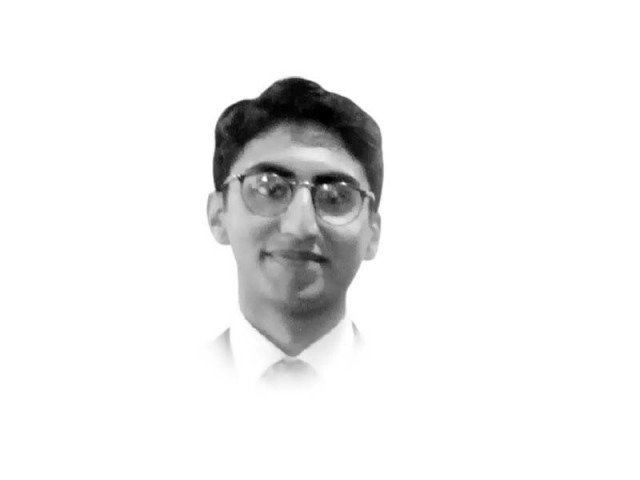Identifying the ‘elite’ in elite capture
The definitions and classifications of the individuals and groups that formulate the ‘elite’ in Pakistan are vague

‘Elite capture’ has been the favorite buzzword in Pakistan recently, dominating the imagination of domestic intellectual community for the past few years. The term was popularised during the PTI government when it was proclaimed to be the root of all socio-economic ills in Pakistan by former prime minister Imran Khan. Former finance minister of the incumbent government, Miftah Ismail, also spoke at length about elite capture, with his November 2022 article The ‘One Per Cent Republic’ making headlines across the country. Ironically, both champions of elite capture narrative are themselves part of the elite. Over the past few years, newspapers and digital spaces in Pakistan have also been occupied by ‘elite capture’, with the term appearing in the media every now and then. Nowhere, however, is there an answer to the fundamental question of, who is the elite that has captured?
In Pakistan, elitism and classism are considered as one and the same. Miftah Ismail identified pedigree and pedagogy as identifiers of the elite. He cited as example the control of most of wealth in the country by a few families, and the alumni of notable education institutions like Aitchison College and Karachi Grammar School holding key positions in country. However, if a student at Aitchison ends up becoming a software developer in Google or a barrister in London, how come they be considered elite? The tendency to associate elitism with social class may be misleading. All people living in DHA and Bahria Town are not elite, though some of them may be. Same goes for people waiting in line at Tim Horton’s past month. Such people may have inherited a disproportionate amount of wealth, held an executive position, or built a profitable business during their lifetime, yet may not exert any crucial influence on decision-making.
If the formally operational identifying methods of elitism are applied to Pakistan, we may see descriptions of elites in popular culture and literature as vague at best. Elites are individuals or groups with substantial influence on important decisions in society, regardless of their social background or economic status. There are three ways of identifying elites: positional, identified by virtue of official or formal position; decisional, identified by possessing authority to take and influence decisions; and reputational, identified by recognition of elite membership by other elites and credible observers. Yet the definitions and classifications of the individuals and groups that formulate the ‘elite’ in Pakistan are vague, to say the least.
For example, political economists such as Matthew McCartney and S Akbar Zaidi have sparred with the subject of elite capture in recent years. In their book, New Perspectives on Pakistan’s Political Economy (2019), the authors treat elites as a vague group or social class with no parameters to identify the exclusive members who decide (and capture) the fate of nation.
Similarly, a detailed study was conducted by Rosita Armytage in her book, Big Capital In An Unequal World: The Micropolitics Of Wealth In Pakistan (2020), that identified elite in Pakistan as a top 1% group which controls most of the country’s wealth and earns an annual revenue of at least $100 million. Interestingly, most of the elite members interviewed by Armytage did not acknowledge their status as elites. Moreover, in an informal economy like Pakistan it is equally difficult to assess revenues and assets of individuals and families to determine status of their wealth.
A PIDE study conducted last year also attempted to describe elite capture in Pakistan. However, the entire framework was borrowed by a UNDP Human Development Report (2020). Resultantly, the endeavour to accurately identify ‘elite’ in Pakistan has remained restricted to reproducing a list of eight groups receiving disproportionate economic benefits from the state.
Despite its increasing volume, the present discourse on elite capture in Pakistan lacks empirical detail. Elsewhere, formal studies of elite have started to consider methods that identify elite networks and quantify their numbers and degree of interaction. One such study was undertaken at University of Copenhagen that devised a dataset identifying 5079 (elite) group affiliation networks (both formal and informal) among 37,750 individuals belonging to different organisations in Denmark. The authors further narrowed it down to an elite core network of 413 individuals with each individual having connections with at least 199 other individuals in the core network (coreness score).
Another study by Elite Networks Shift Project in the Netherlands used computation to analyse texts of 19,604 newspaper articles published in 2008 in Indonesia. The computation shortlisted 815 individuals identified as politically relevant elites in the country based on frequency of mentions. When compared with 1178 positional elites manually identified by researchers, the study found inclusion of only 22% elites holding official positions among the 815 elites identified by computation of newspaper text. Such studies have demonstrated that it is possible to empirically identify and present in detail the actual decisional and reputational elites and elite networks through space and time.
In Pakistan, lack of empirical evidence regarding elitism is the foremost reason of exoticism surrounding the phenomenon, and refusal thereof by anyone and everyone to acknowledge their status as elite. It has made it convenient to brushing all graduates of Aitchison and LUMS, all residents of DHA and Bahria Town, or all members of bureaucracy and armed forces as elites, without acknowledging and identifying those responsible for the capture of state and society. Unless parameters of elite networks are delineated and core of decision-making elites in Pakistan are identified, we must ask at every mention of the word: elite capture by whom?
Published in The Express Tribune, March 25th, 2023.
Like Opinion & Editorial on Facebook, follow @ETOpEd on Twitter to receive all updates on all our daily pieces.














COMMENTS
Comments are moderated and generally will be posted if they are on-topic and not abusive.
For more information, please see our Comments FAQ